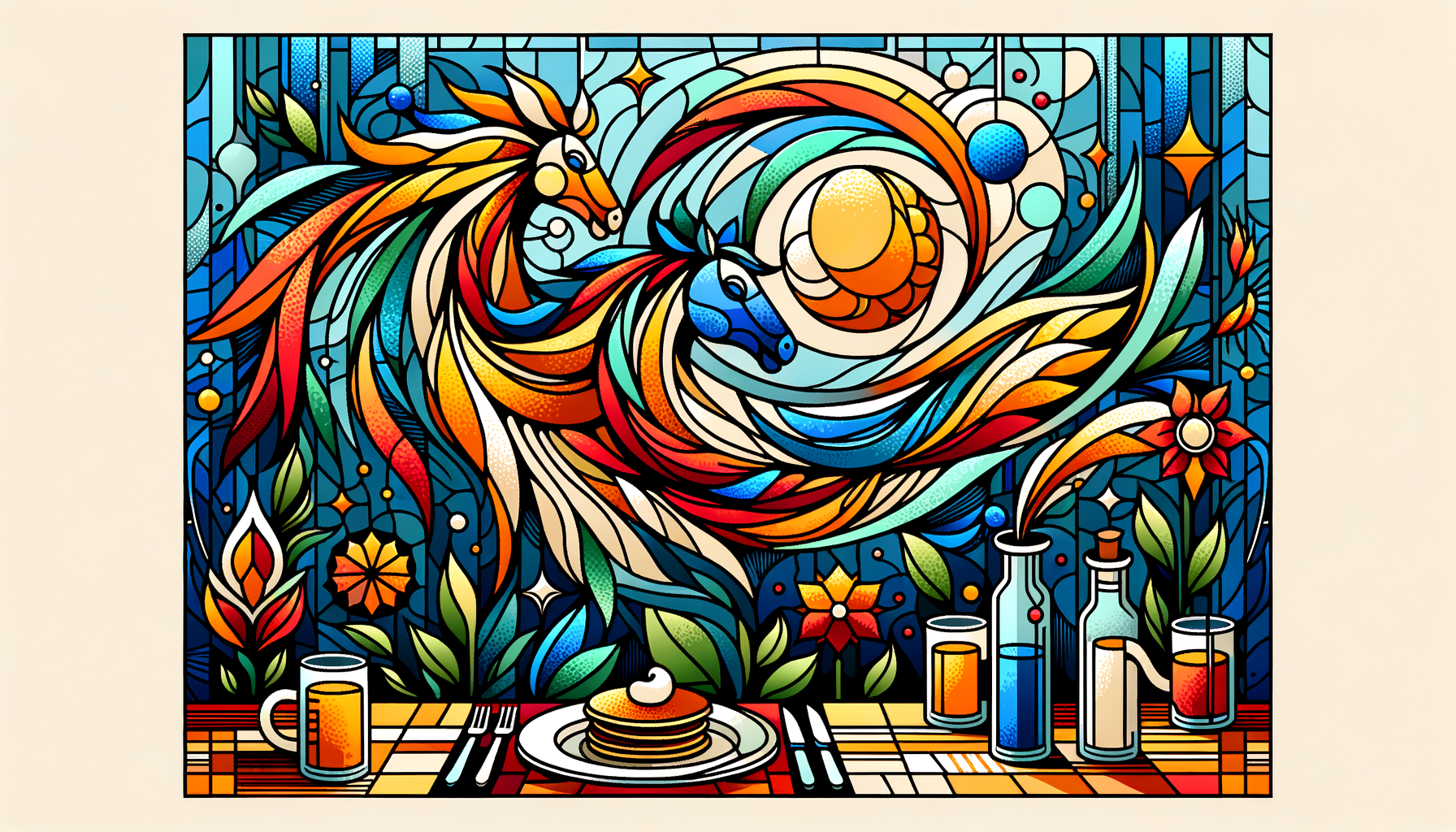They say every family has stories, but in mine, the stories weren’t shared in hushed tones over holiday dinners or nestled in old trunks buried under faded photographs. No, the legends of the Harringtons were told loudly and unapologetically, often over stacks of pancakes at my parents’ beachfront café or while balancing milkshakes on the boardwalk. Our family lore wasn’t just a patchwork quilt of quirky traditions or tall tales—it was a collective mantra, shaping how we approached not just life, but connection.
One thing about growing up in a tourist haven like Myrtle Beach is that your home is never quiet. There’s a buzz of people coming and going, each visit adding a layer of energy—and maybe just a hint of chaos. But in our family, chaos was currency. It was the way we laughed, the way we coped, and, oddly enough, the way we loved. And at the center of it all were the stories.
The Legend of the Great Crab King (Or, the Art of Not Taking Yourself Too Seriously)
It all started with a crab. Not some tiny thing scuttling back to the Atlantic, but a big, red, papier-mâché monstrosity that my dad won in one of those boardwalk claw machines. I was maybe six at the time, and he hoisted it high, dubbing himself the “Great Crab King of Myrtle Beach.” From that day forward, the Crab King made appearances at every family gathering—perched awkwardly at the end of the Thanksgiving table, popping up in the background of Christmas photos. It became a running joke in our family, one made funnier by how seriously Dad committed to the bit.
Here’s the thing about the Crab King, though: it wasn't just about the laughs. My family’s oddball mascot became a way of reminding ourselves not to let embarrassment or self-consciousness rob us of joy. Legend has it the Crab King saved a disastrous first date my dad had with Mom by cracking jokes about how he’d already peaked by winning the claw machine jackpot. Naturally, when I was old enough to launch into the rocky waters of dating, my parents made sure I inherited the lesson.
The moral? Everyone needs a Great Crab King moment. We’re all a little ridiculous sometimes—and that’s what makes us lovable. Whether you’re on a first date or sharing a vulnerable moment with someone you care about, lead with authenticity. The right people will always appreciate the person who isn’t afraid to embrace their quirks.
Aunt Carol’s Boardwalk Pep Talks (Or, Why You Show Up Even When It’s Hard)
When I was 12, my Aunt Carol went through a divorce. She didn’t get the house, the dog, or the enviable patio furniture collection, but what she kept was her ability to laugh through heartbreak. To deal with the chaos, she’d take me on long walks down the boardwalk every Friday night—the kind of walk that’s part therapy, part aimless wandering, and entirely laced with smells of funnel cakes and saltwater taffy.
She’d tell me things like, “Kaylee, nothing in life is ever that hard to figure out over ice cream,” or “There’s no problem a good ocean breeze can’t untangle.” At the time, I was young enough to think these were just quirky adult sayings, the kind of advice you roll your eyes at until it clicks later in life. What I didn’t know was how much grit those boardwalk lessons held—or how they’d shape the way I’d approach relationships as an adult.
When you grow up near the beach, you learn that time and tides are constant. Things change, but they hold their rhythm. Relationships, heartbreaks, and even your own personal growth—it’s all messy, but it doesn’t mean you stop showing up. Aunt Carol didn’t hide her pain behind bravado or bitterness; she brought it to the boardwalk, ordered a double-scoop cone, and walked forward anyway. That’s what resilience can look like.
For me, it’s been a reminder to approach dating and relationships with grit and grace. Challenges don’t mean running away when things get tough; they mean you grab the metaphorical ice cream and walk through it. And, more often than not, sharing that vulnerability with someone means they’ll lace up their shoes and walk alongside you too.
Grandpa Joe's 5-Minute Rule (Or, Knowing When to Let Go)
Here’s the thing about my Grandpa Joe—you would’ve loved him. Everyone did. He had this ability to spin every setback into a story, especially when life served up not-so-great moments. He called it his 5-Minute Rule.
“If something goes wrong and you want to be mad, fine,” he’d boom, gesturing dramatically for effect. “But after five minutes, you’ve gotta move on. You’ve got better things to do.” (Sidebar: The first time Grandpa tried to enforce that rule, his old beach truck unexpectedly broke down on a bridge, leaving him to coast straight into a crab shack parking lot. He definitely stayed mad for more than five minutes—so he wasn’t always a perfect follower of his own philosophy.)
The 5-Minute Rule sounded impossible when I was a kid. As an adult? Life makes it necessary. When I got ghosted after what I thought was an incredible third date, I let myself wallow for an evening, re-reading texts and overanalyzing every small exchange. The next day, I pulled a Grandpa Joe—grabbed my beach chair and a magazine, and moved on. Not because it magically resolved my confusion or bruised ego, but because the 5-Minute Rule gave me permission to feel the sting briefly, then choose my next adventure.
Grandpa’s wisdom had cracks in it, the kind that makes you smile because the truth underneath still stands. Heartbreaks and disappointments will happen, but dwelling on them won’t bring closure. Instead, take what you’ve learned—then paddle your inner surfboard toward the next wave.
The Harrington Family (Or, Why Telling Your Stories Can Change Everything)
When I think of my family, I think of Saturday mornings at the café, where Dad told his Great Crab King stories to hoards of locals like he’d just won the lottery all over again. I think of Aunt Carol adjusting her sunglasses and refusing to let tears stop her from indulging in chocolate-dipped pretzels. I think of Grandpa Joe’s booming laughter as I sputtered through a breakup story, imploring me to set a timer and let go of the baggage.
Our stories—and the lessons behind them—became anchors. In dating, they taught me to lean into the messiness, to stop pretending life (or relationships) needed to look like the glossy version someone else is living online. The joy’s in the imperfections, and the real connection comes from the moments you’re brave enough to share.
The Takeaway: Write Your Own Legends
If there’s one thing I’ve learned, it’s that every family has stories, big and small, and every person does too. So, make yours. Share your embarrassing moments that turn into icebreakers. Laugh through the hard stuff when you can. And don’t listen to anyone who tells you it’s cheesy to spin your life into its own quirky mythology. Whether it’s taking the lessons from a failed romance or leaning into the love that feels just like home, you get to be the author of your own connection-filled lore.
Oh, and if you find yourself with a claw machine prize you don’t know what to do with? Give it a crown. Legends have to start somewhere.




















